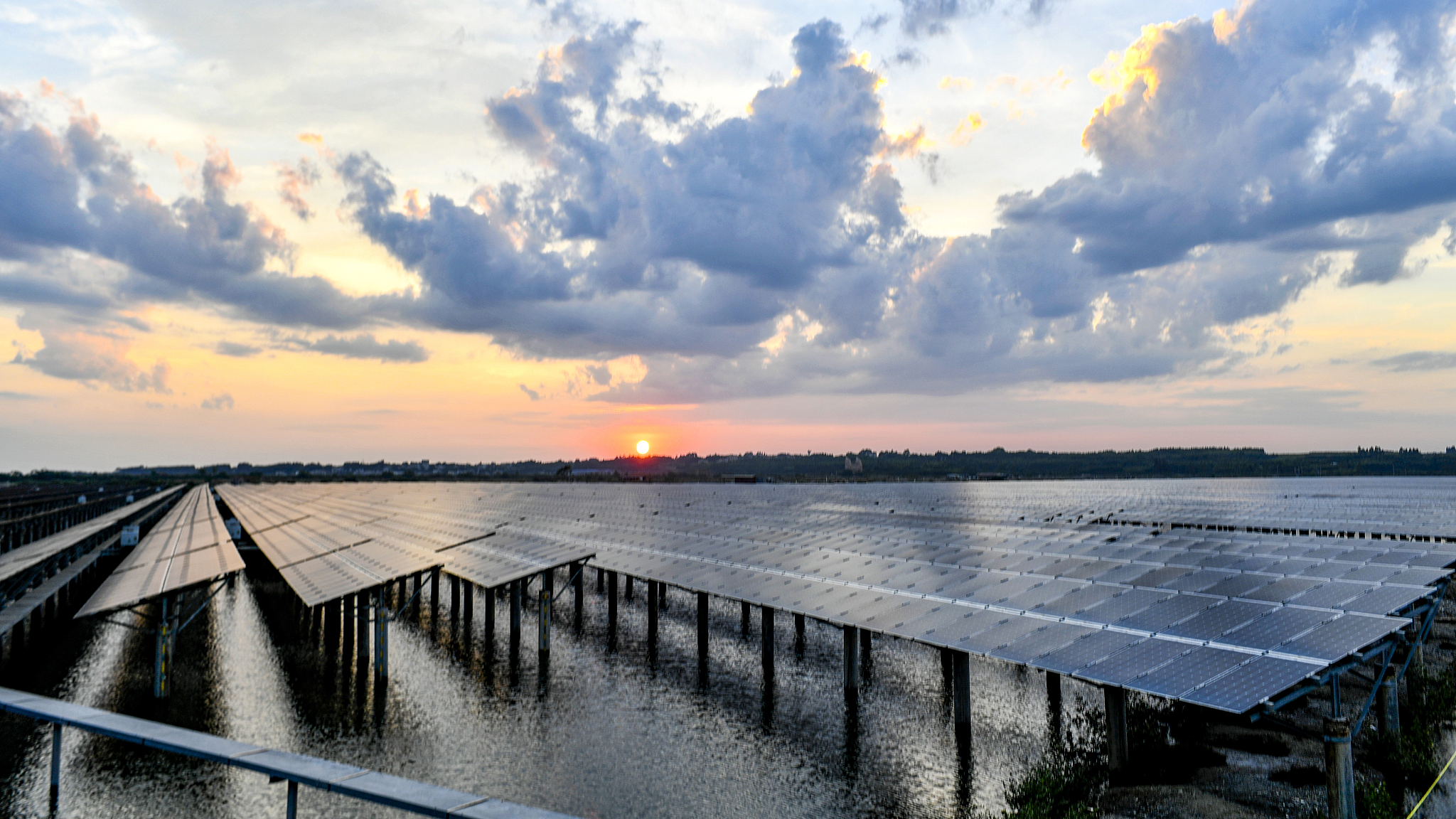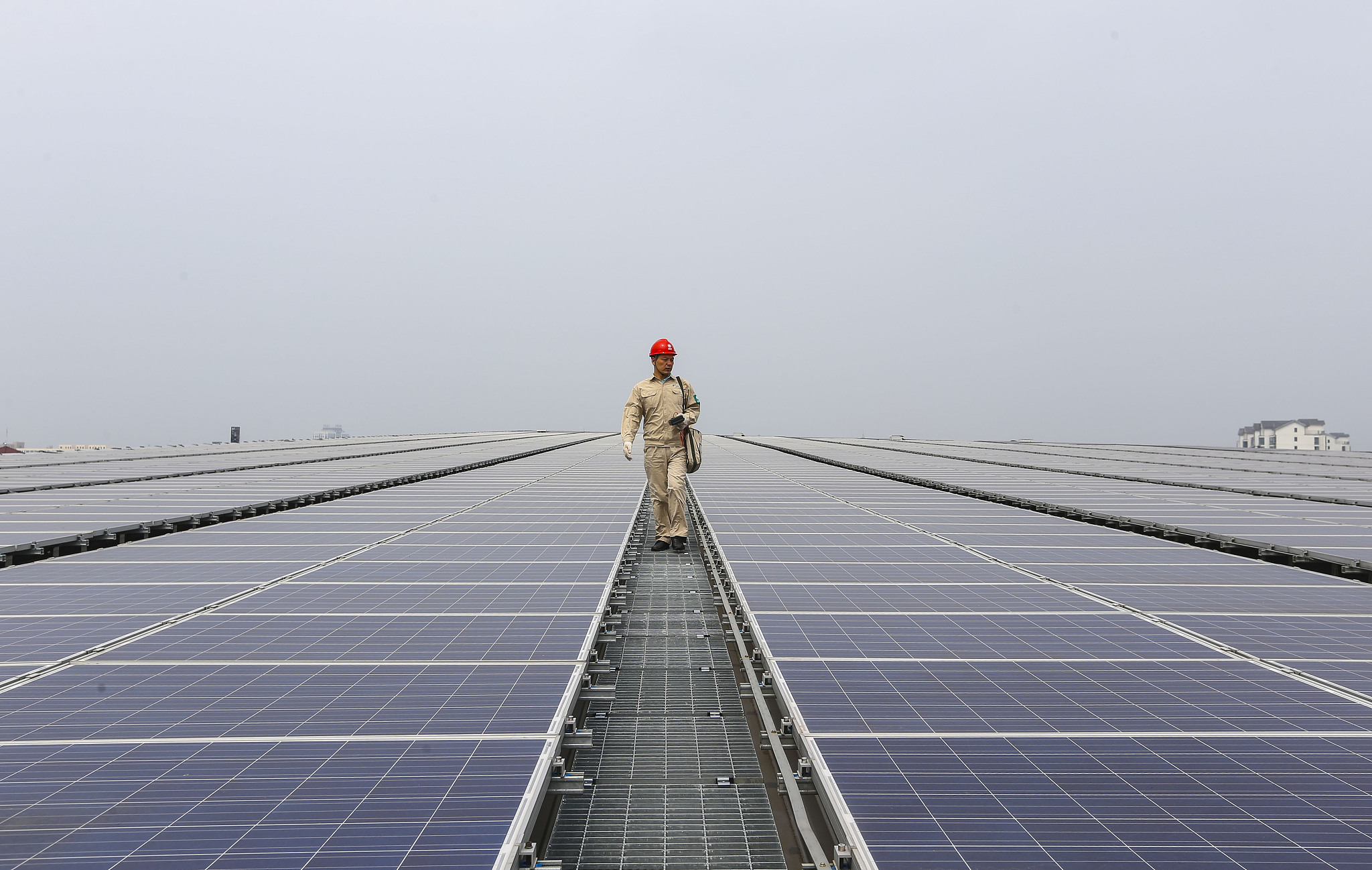
Editor's note: Mustafa Hyder Sayed is the executive director of the Pakistan-China Institute. The article reflects the author's opinions and not necessarily the views of CGTN.
The United States Department of Commerce has sanctioned several Chinese companies that are important players in the solar panel manufacturing sector and have significant contribution in the renewable energy supply chain. Some of the companies sanctioned are manufacturers of polysilicon and monocrystalline silicon, both items which are key components needed in the manufacturing of solar panels. Using the veneer of "human rights abuses and forced labor" by Chinese companies based in Xinjiang Uygur Autonomous Region, the move to sanction Chinese solar firms has a larger objective: target China's leading role in renewable energy and innovation, one of the fields where China is fast surpassing the United States.
In June 2021, the White House published a report titled, "Building Resilient Supply Chains, Revitalizing American Manufacturing, and Fostering Broad-Based Growth." The report outlines how the United States can maintain and preserve dominance of manufacturing and supply chain of critical technologies, minerals and new energy. The report also categorically underscores China as the prime adversary as it demonstrates leadership in new and renewable energy and supply chains. The report recommends that it is imperative for the United States to ensure that U.S. prevails in its dominance in this realm, with seemingly no room for cooperation with China.
The biggest loser in these one-sided sanctions is not any one state, but the Earth as a whole. At a time when one of the, if not the foremost, challenge posed to the world is that of the climate crisis, also echoed at the recent meeting of the G7 leaders as well as the Climate Summit hosted by Washington in March 2021, the sanctions will effectively disrupt the efforts to transition from fossil fuels to renewable energy.
Since majority of the global supply of polysilicon, needed for the manufacturing of solar panels is sourced from Xinjiang, and solar panel prices constitute 40 percent of the total solar project cost, the U.S. sanctions will ultimately make it more expensive to put up solar power projects which will reduce the incentive for investors to prioritize solar projects over traditional fossil fuel projects.
The U.S. sanctions also shows a dangerous trend where the United States is willing to risk issues of global importance that concern the international community for short-term, narrow political interests. Even though Washington and Beijing agreed to cooperate on issues pertaining to their common interests such as climate change, pandemic prevention, as well as geopolitical flashpoints such as Afghanistan and the Democratic People's Republic of Korea (DPRK); new rules of the game need to be determined where areas such as climate change and other issues of public interest are considered off-limits.
It is also important to look at the veracity of the allegations that the United States is basing its sanctions on. China, as well as the international community, has urged the U.S. to present evidence in support of its assertions of genocide, slave labor and human rights violations in Xinjiang. However, thus far, the U.S. and the Western media have just been repeating what are mere accusations, but have not presented any evidence to corroborate what they are saying.

Power workers inspect solar photovoltaic equipment on a roof of nearly 30,000 square meters in Jingjiang, east China's Jiangsu Province, August 18, 2015. /CFP
Power workers inspect solar photovoltaic equipment on a roof of nearly 30,000 square meters in Jingjiang, east China's Jiangsu Province, August 18, 2015. /CFP
The same was done when the U.S., before its invasion of Iraq in 2003, said that Iraq has weapons of mass destruction, and the Western media persistently repeated those accusations, but later the UN inspectors which visited Iraq reported that was no evidence of Iraq having weapons of mass destruction. Jeffrey Sachs, a world renowned economist and sustainability guru, has co-authored an important article in April of this year titled, "The Xinjiang Genocide Allegations are Unjustified."
In the article, Sach writes "the genocide charge was made on the final day of Donald Trump's administration by then-Secretary of State Michael Pompeo, who made no secret of his belief in lying as a tool of U.S. foreign policy." Additionally, Sach's cites an important Foreign Policy magazine article titled, "State Department Lawyers Concluded Insufficient Evidence to Prove Genocide in China", which delves into how a split memo was sent to Pompeo where the key lawyers of the State Department disagreed with the U.S. Ambassador at Large Kelley Currie and former Senator Sam Brownback, the latter of course were adamant in adopting the official stance of "genocide" in regard to Xinjiang.
While there is a new government in Washington, it seems the geopolitical prism of the "New Cold War" that Trump's administration had adopted has been strengthened and is being continued with. Rather than competing with China, the United States is weaponizing human rights, using information and media warfare, and demonization of China and the Communist Party of China (CPC) to take away from its advances in renewable energy, climate change and soft-power projection, which would be in the form of the Winter Olympics -- sabotaging the latter also seemingly being a target of Washington's Xinjiang narrative.
What Washington does not understand is that its current "China strategy" is neither advancing U.S. interests nor containing China, but deepening the chances of international cooperation on key global issues.
(If you want to contribute and have specific expertise, please contact us at opinions@cgtn.com.)

